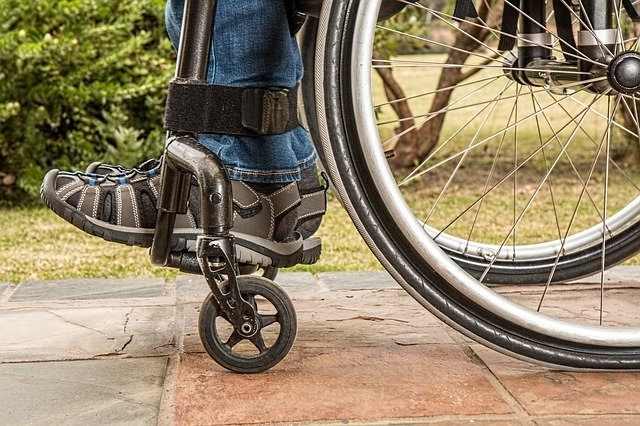
After being in a road accident, you have two primary options for filing an ICBC accident claim. The first option is a no-fault or Part 7 claim, also commonly referred to as “no-fault benefits.” ICBC is required to pay out Part 7 benefits no matter who is at fault in an accident, however ICBC has recently made some changes to Part 7 benefits policy that complicate matters.
The second type of ICBC claim is a tort or personal injury claim. This is a claim filed when the injured party believes that their injury is due to the negligence or recklessness of another party involved. Unlike a part 7 claim, a tort claim is dependent on the determination of fault.
Although a Part 7 claim can include a claim for temporary total disability benefits,which is a form of income replacement, in this blog we will be concentrating on medical and rehabilitation benefits.
Long-term expenses after personal injury can include:
- Medical treatment
- Physical rehabilitation
- Mobility equipment
- Housekeeping/domestic assistance
ICBC will often argue that damages for “future cost of care,” which account for an injured person’s medical and other care costs down the road, should be reduced to account for amounts that ICBC might reimburse to the injured person in the future in the form of Part 7 benefits. However, ICBC will usually refuse to promise to pay any of these amounts.
In other words, ICBC says that injured persons should receive less than the amount they need to pay for their medical care in the future, because of the mere possibility that ICBC might reimburse a portion of those costs.
Part 7 Benefits
When settling cases, ICBC used to pay out an estimated future-care cost based on an injured party’s individual case. However, recent changes to ICBC policy mean that now, instead of paying out a set cost and closing the part 7 file, these files will remain open and the claimant will be required to deal with ICBC and submit documentation regarding their treatment and expenses indefinitely. In recent months, ICBC has been more aggressive in separating part 7 benefits claims and tort claims.
Under Regulation 88 (1), ICBC is required to pay for all “reasonable” and “necessary” medical expenses. Beginning April 1, 2019, ICBC will only be required to pay for the following treatment types (subject to the maximum amount in brackets for a standard treatment).
- Acupuncture ($88)
- Chiropractic ($53)
- Counselling ($120)
- Kinesiology ($78)
- Massage Therapy ($80)
- Physiotherapy ($79)
- Psychology ($195)
- Occupational Therapy ($112 per hour)
- Dental, hospital, ambulance, professional nursing services, speech therapy, prostheses and orthoses (monetary limits as prescribed by the Medical Services Commission).
Treatment amounts are limited to the amounts set out in the brackets above. The allowable amounts for the items noted in the first eight bullets above adjust on April 1 every year, pursuant to a formula linked to the Consumer Price Index (CPI).
In addition to the limitations on cost, the new regulations limit the number of treatments a person is entitled to. Acupuncture, counselling, kinesiology, massage therapy, and psychology are limited to 12 treatments. Chiropractic and Psychology treatments are limited to 25. After these limits are reached additional treatments are only payable if a person’s doctor or ICBC’s medical advisor certifies in writing that additional treatments are necessary. Any treatments more than 12 weeks after an accident has occurred are only payable with certification from a person’s doctor or ICBC’s medical advisor.
For motor vehicle accidents occurring after April 1, 2019, you have 60 days from the date the treatment cost was incurred to submit your receipts to ICBC for reimbursement. If the receipts are not submitted to ICBC within this 60 day time frame, then ICBC will not reimburse you at any time. This is also highly problematic for injured claimants who are unaware of this very significant limitation period. What is disturbing is that ICBC is not under any legal or ethical obligation to point this out to injured claimants.
Under Regulation 88 (2), ICBC may pay for a variety of treatments or items if they “are likely to promote the rehabilitation” of the injured person. ICBC has much more discretion with rehab expenses than for the medical expenses described above — which can make it far more difficult to obtain coverage. The rehabilitation services and items include the one-time purchase of a medically modified motor vehicle, one-time alterations to a home (again for someone who cannot get around a normal home), attendant care at home, wheelchairs and various other equipment. While the items which might be covered under Regulation 88 (2) are unlimited, this section is usually interpreted narrowly by the ICBC adjuster.
For medical and rehab benefits, ICBC is entitled to require a person to rely on any other similar coverage before being entitled to Part 7 coverage. If an individual has a group health plan or a private health plan, those plans must be used first before ICBC can be asked to pay.
How to Protect Your Part 7 Benefits
As complicated as the above discussion may seem, the rules regarding Part 7 benefits are far more complicated still. While the possibility of being denied a claim is the most obvious source of headache, it is not necessarily the only one, let alone the most common. For instance, restrictions on coverage may arise, unexpected deductions may be made because benefits are being paid out from other sources, or proper claim procedure is not followed.
Before you contact ICBC to start the process of making a claim for Part 7 benefits, you should consult an experienced ICBC injury claim lawyer for help understanding your rights.
At Hoogbruin & Company, our lawyers have extensive experience dealing with ICBC and injury claims. If you think that you may be entitled to compensation for long-term personal injury expenses, call today for a Consultation.
